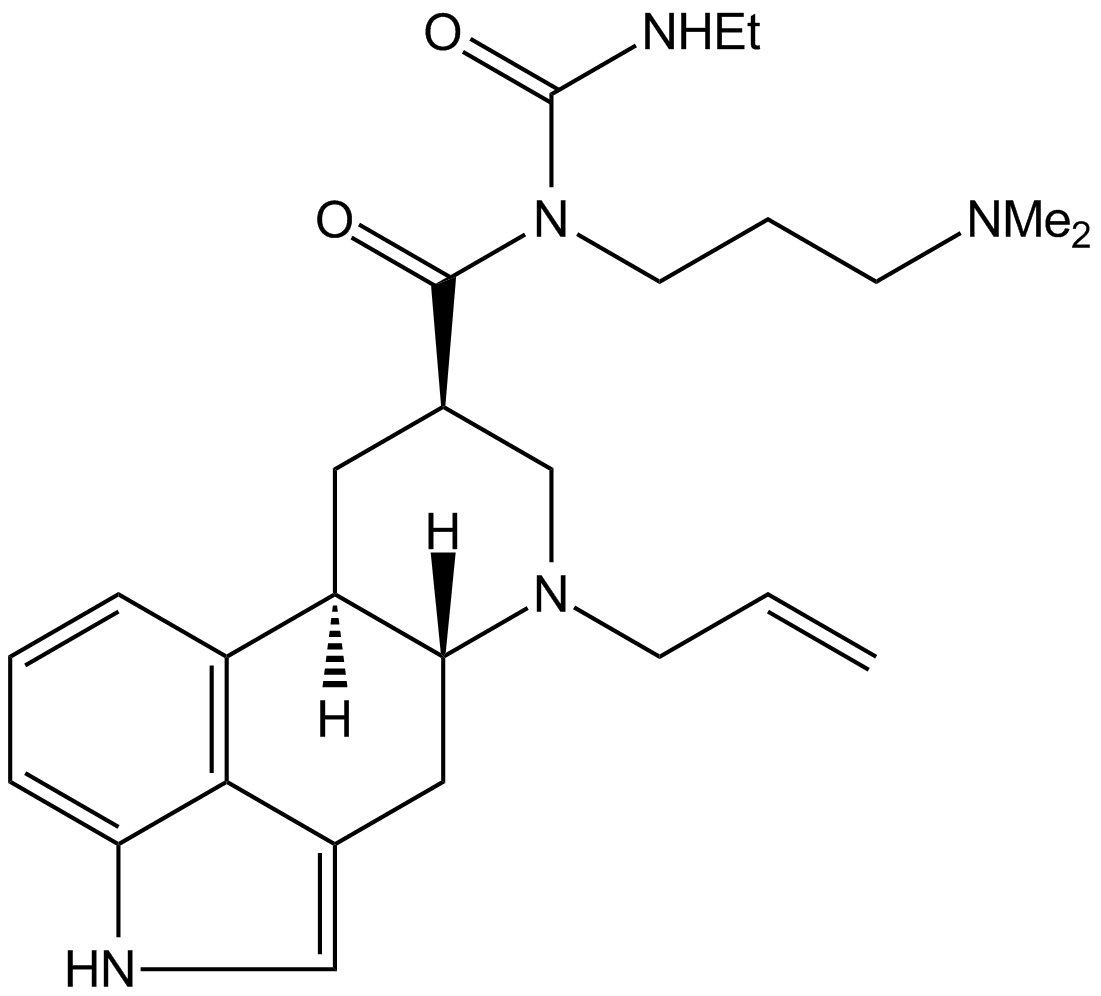Cabergoline (Synonyms: FCE 21336) |
| رقم الكتالوجGC10441 |
كابيرجولين هو ناهض لمستقبلات الشقران مشتق من الدوبامين D2 وله تقارب كبير لمستقبلات D2 و D3 و 5-HT2B (Ki = 0.7 و 1.5 و 1.2 على التوالي)
Products are for research use only. Not for human use. We do not sell to patients.

Cas No.: 81409-90-7
Sample solution is provided at 25 µL, 10mM.
IC50: 0.1 nM
Unlike other pituitary hormones, prolactin (PRL) secretion is predominantly inhibited by dopamine secreted by the hypothalamus. Cabergoline is an ergoline derivative with potent, selective and long-lasting inhibitory activity on PRL secretion acting on dopamine receptors present in pituitary lactotrophes.
In vitro: Receptor binding studies have demonstrated that cabergoline has high in vitro selectivity and affinity for the subtype D2 of the dopamine receptor. In rat anterior pituitary cells, the concentration of cabergoline required to inhibit PRL secretory activity by 50% were 0.1 nmol/l [1].
In vivo: In various animal models, cabergoline markedly reduced plasma PRL levels in vivo after single or multiple doses, and the PRL-lowering effects appeared 2 - 8 h after administration lasting for 72 h or longer. In addition, a single dose of cabergoline 0.6 mg/kg to rats, inhibited the serum levels of PRL for 6 days significantly [1].
Clinical trial: Cabergoline at doses of 0.125 - 1 mg twice a week caused a dose-dependent suppression of PRL secretion in women with hyperprolactinaemia. cabergoline was shown to be more effective than bromocriptine in inducing a complete biochemical response and clinical efficacy and was better tolerated than bromocriptine in the majority of patients [1].
Reference:
[1] Annamaria Colao, Gaetano Lombardi & Lucio Annunziato. Cabergoline. Exp. Opin. Pharmacother. (2000) 1(3):555-574
Average Rating: 5 (Based on Reviews and 34 reference(s) in Google Scholar.)
GLPBIO products are for RESEARCH USE ONLY. Please make sure your review or question is research based.
Required fields are marked with *




















